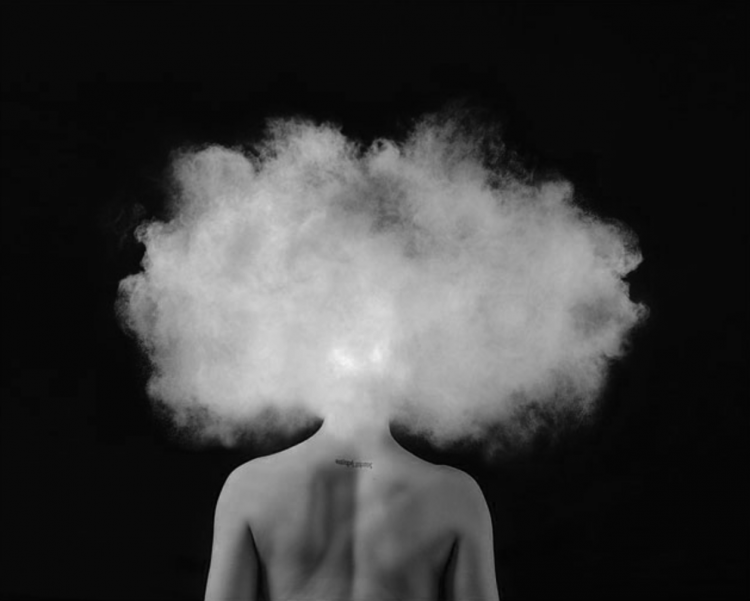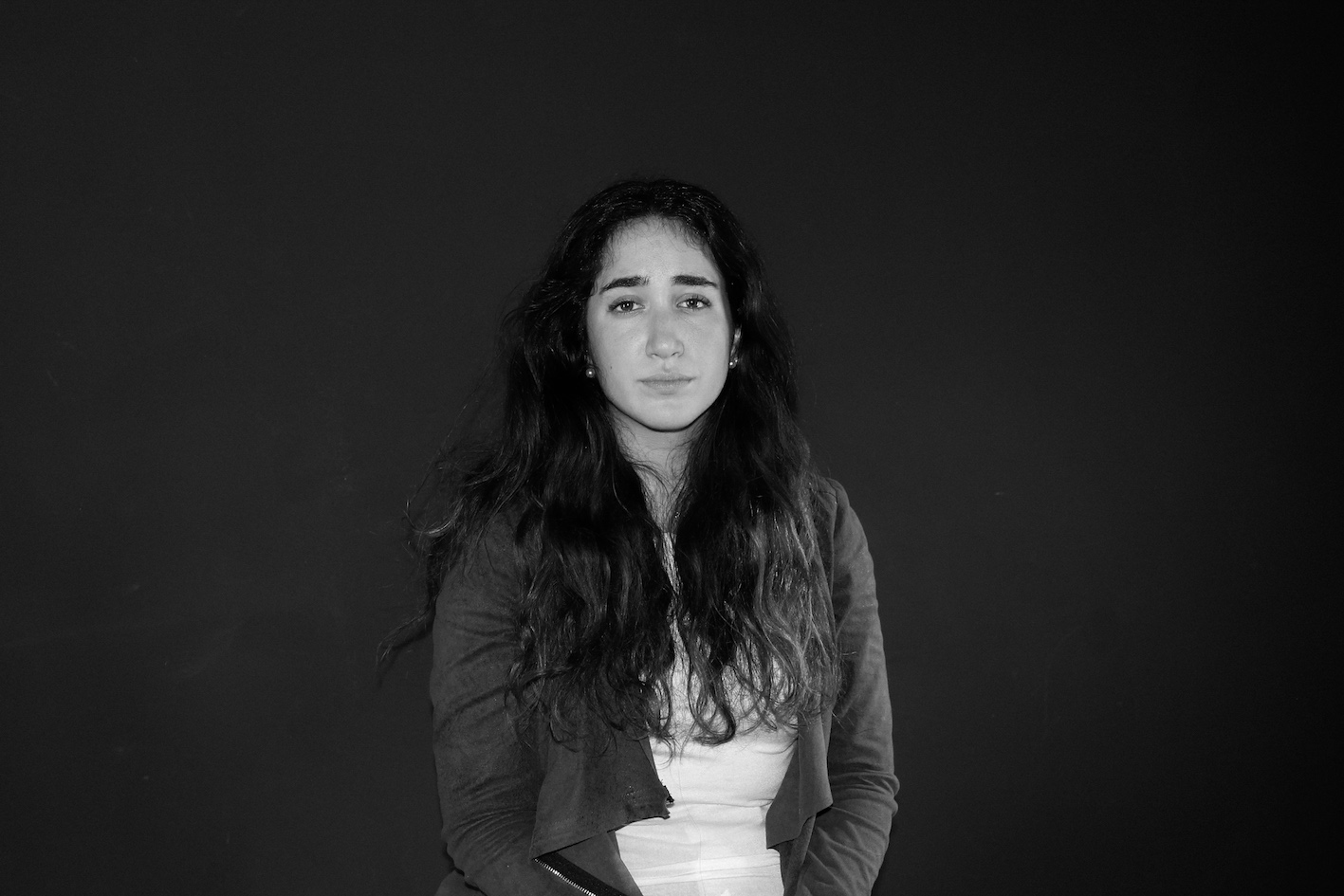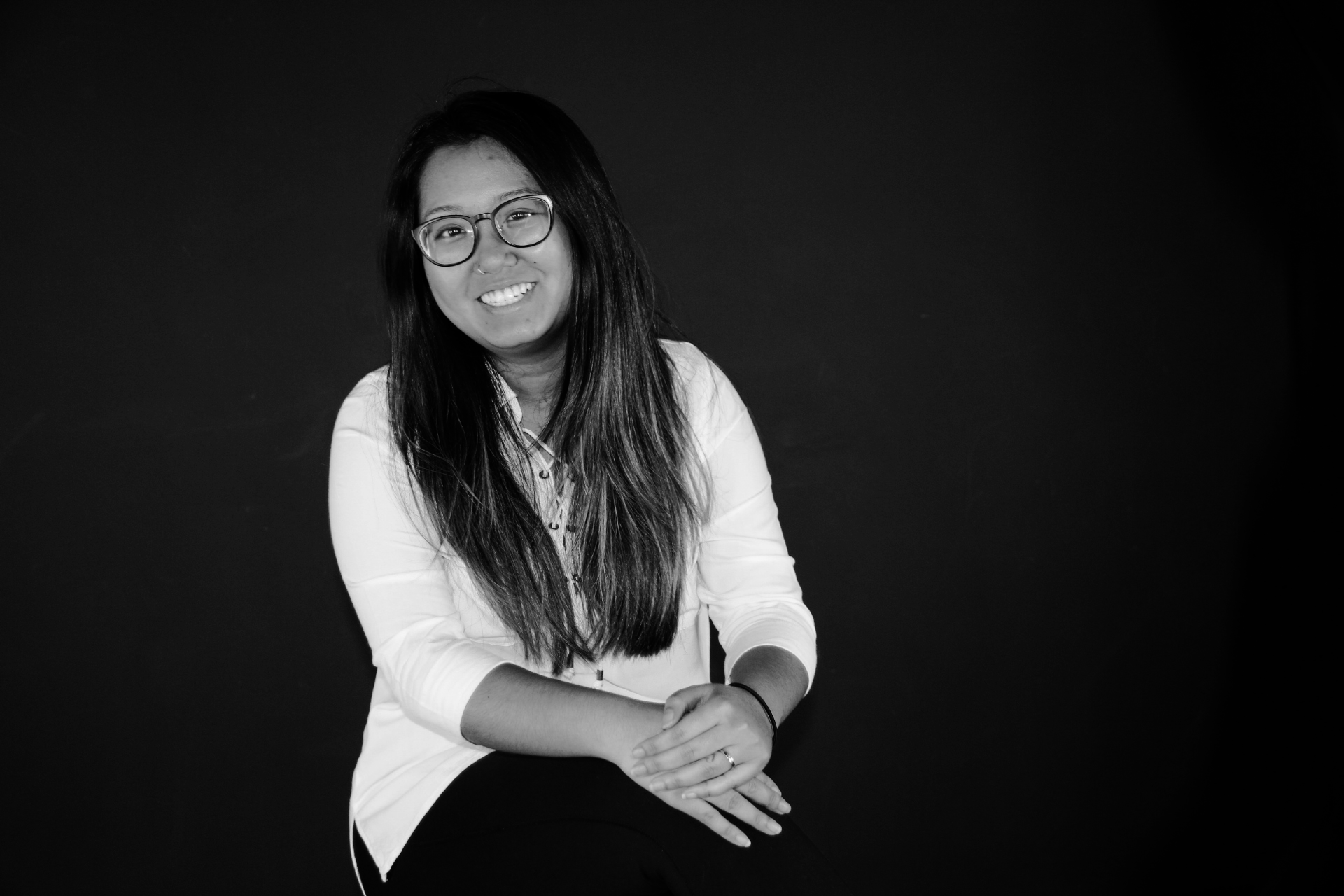Anxiety @ AUP

Anxiety is used as a “general term for several disorders that cause nervousness, fear, apprehension, and worrying." But the medical definition does not explain the way anxiety affects individuals themselves, nor what they feel. In the United States alone, anxiety affects more than 40 million people; 12 percent of the whole U.S. population. It is important that we become more vocal about mental health, and the growing effect it is having on our generation and those to come.
Salome (Sali) Cheishvili, 21, from Georgia, Elizabeth (Liz) Xuan-Mai Nguyen Son, 22, French, and Fernanda (Fer) Sapiña, 21, from Mexico; these three women, who come from different cultures, languages, and traditions, share one thing in common: their struggle with anxiety.
When did your anxiety begin?
Sali: Since I was a teenager. In Georgia, the concept of anxiety isn't spoken about. I’ve always been told, ‘you’re just nervous, it’s normal’. I later realized that anxiety interferes with my everyday life, it’s not easy, and not everyone is as anxious as I am most of the time. I always just disregarded it, but now that I’m more educated about anxiety I am more aware of it when it’s happening.
Liz: I didn't really know I had anxiety. I thought I just got really bad stomach aches. Eventually, I realized they were stress-induced. It was during my junior year of high school that I officially got diagnosed. I stopped breathing and passed out. I was rushed to the emergency room. It just so happened that my general practitioner used to work at that hospital, they called him. The next day he diagnosed me with clinical depression and anxiety.
Fer: It started in high school, I experienced a great deal of bullying. I had a lot of difficulties interacting with people while growing up. It was definitely a rough time in my life, and I couldn't adapt. Going into university I thought that I had overcome my anxiety, having made friends here. One day I realized that my anxiety came from residual traumas I have from Mexico, because of the things that have happened.
Image Credit: Alizée Chaudey; Model: Fernanda SapinaDoes it impact your daily life? How?
Sali: It definitely affects my life. I’m not 100 percent sure if my insomnia is caused by my anxiety but I guess it is. Sometimes it’s more severe, and sometimes an entire day can go by without me feeling anxious at all. I normally have no specific reason, but I’ll start feeling anxious in the middle of class. It's hard because you don't know where it is coming from and you can't concentrate on what others are saying. It kicks in out of nowhere, it’s not up to me. You have to deal with it.
Liz: Now it impacts me less, but for a while I was on a rotation of a bunch of meds that made me either really drowsy, really emotional, or robotic. When I got to AUP, I started running out of meds. During my freshman year I was getting frequent attacks, and so I started seeing a psychologist weekly, and a psychiatrist once in a while. The psychiatrist wouldn't prescribe me any of the medication I’d previously been on, claiming it was too strong for someone my age, which led me to explore different ways to manage my anxiety. I pretty much stopped clubbing and I barely drink alcohol anymore, which has helped a lot. Some days are better than others but you eventually learn how to cope as best you can.
Fer: Its effects are definitely clear through my insomnia. I always have a million things on my mind, and I can’t sleep until everything I have to do is done. I think that’s what’s made me a heavy smoker, it somehow keeps my anxiety at bay. With friends, I have many problems. If a plan is being made, I have to plan every single detail to know that it’s actually happening. If I’m having a conversation with someone and I feel they’re being weird or a bit distant, I always feel like it’s my fault, as if I did something to make them angry. It's the same if someone doesn’t respond to my messages; I go into a spiral thinking that I’m a disgusting human being, and that I’m doomed to always be alone. Anxiety is very hard, in the sense that I always think people don’t care about me. I know this is not true, but try telling your anxiety that.
"You start seeing black, in a pool of tar that you can’t get away from. You try your best to brush it off, telling yourself ‘it’s all in your head’, but you can’t: your skin doesn’t feel your own."
How mild or severe would you say your anxiety is?
Sali: It depends on the day. A few days ago I was sitting in a double period, tired from the day before. I started feeling so anxious and it didn’t go away for a long time. It felt as if gravity was intensified, my head was so heavy, that I was trying to hold it thinking it’s going to fall off from the weight. I was fiddling with my hands because it helps when I’m feeling anxious. Funny thing is, this happened in my clinical psychology class while learning about anxiety. I felt like the professor could tell what was happening, and as if the rest of the class was staring at me. All I could think was when is this going to go away. By the second period, I felt perfectly fine, as if nothing had happened. Severity depends on the day.
Liz: It used to be severe. I would stop breathing quite regularly, and on better days I’d just be in a lot of pain and have difficulty breathing. Now it’s pretty mild but I think that’s thanks to my dog. People think it’s bullshit but pets really help. I haven’t had a really bad attack in a while.
Fer: It has definitely gotten better over time. I always make sure that my mental health is in check. I have a close group of friends that are always there for me when I’m having a bad day, and my parents, of course, who are a great support system. I try my best to avoid situations that I know will trigger my anxiety. Meditation has also helped me a lot, as well as taking time off of social media and having a bit of “me time”.
Image Credit: Alizée Chaudey; Model: Salome CheishhviliHow would you explain anxiety to someone who’s never experienced it?
Sali: Out of nowhere it starts, I notice myself holding something, always fiddling with my hands. If I’m holding a napkin, I will rip it into a million little pieces. My hands get sweaty. I believe everyone has experienced anxiety from time to time, maybe before taking a test. Of course, not all experiences are to the same degree, but you can try and imagine what it feels like if intensified. The issue is that I usually don’t know what’s causing me to be so anxious... it’s most probably unconscious, therefore trying to stop the feeling becomes harder. It’s like feeling anxious about being too anxious. And that morphs into my social anxiety as well.
Liz: It’s super difficult to explain, especially if you’ve never been around people who have it. You feel physical pain and it gets really hard to breathe. Sometimes you know your triggers and sometimes you don’t. It’s almost like living in constant fear of irrational things; a never ending battle with yourself. But people experience it differently- just because this is how my anxiety manifests doesn't mean it’s the same for everyone else.
Fer: Personally, it is a sense of restlessness. Like when, on Whatsapp, the tick turns blue but you don’t get a reply. I reread all the previous messages, trying to figure out what I did to annoy them. Anxiety is breathing really hard, and feeling like the walls are closing in. An itch you can’t scratch, inhabiting my concentration. You start seeing black, in a pool of tar that you can't get away from. You try to brush it off by telling yourself 'it's all in your head.'
What’s it like when you’re struggling and someone says “Oh stop, you’re overreacting”?
Sali: In Georgia, people would always say 'you’re just nervous, it’s nothing.' People would normalize the anxious feelings, not accepting that anxiety is real. I have a friend in medical school who believes her reasons to be anxious aren't 'severe enough' to go see a therapist. When she did explain it to her professor, no one took her seriously. I have friends who do understand, or at least try to; I get less anxious when I am around them.
Liz: It’s frustrating because often people don’t get it. I’ve been lucky enough to have been around caring and understanding individuals.
Fer: It is like having a broken leg and someone telling you to keep walking, that it's just a scratch. Anxiety is not something that you can fix in an instant. I’m not doing it on purpose nor am I exaggerating. Saying it’s going to be ok won’t make the problem go away. That is not how you help your mental health; it doesn’t fix the illness. You need to let your friends know that you’re there for them. There’s always someone fighting a battle that we know nothing about, a little compassion goes a long way.
Image Credit: Alizée Chaudey; Model: Elizabeth Xuan-Mai Nguyen SonHow do you think AUP can bring more awareness to the issue of anxiety? How can they accommodate their students struggling with it?
Sali: With the growth of social media, people are becoming more aware, but there is also a misunderstanding about what anxiety is. At AUP, people are definitely more aware of it than in my own community. I think it is important for students to be more vocal about it, especially with professors. If you are presenting and your anxiety kicks in, you could be evaluated differently. If the professor is aware and there is open communication between them and the students, it can make a big difference.
Liz: Kevin Fore helped me through my anxiety when I had a few bad attacks freshman year. He was really supportive and guided me through the process of getting help. Honestly, if he hadn’t been there I don’t know what my experience with anxiety at AUP would’ve been like because he’s one of a kind. I do think that AUP needs to make it more known that there is a system in place to support us. Especially when it comes to mental health issues. It should be advertised that there are a certain number of sessions with a psychologist are covered by our health insurance.
Fer: More than anything, it’s important to have a safe space. I think Pamela Montfort, the guidance counselor, is an incredible resource. You can talk to her about anything. Perhaps we should have a mental health day to talk about these issues. What’s most crucial, is to know that you’re not alone, even if you may feel like it. We have to be as vocal as possible, creating a conversation where mental health is not a taboo subject.










